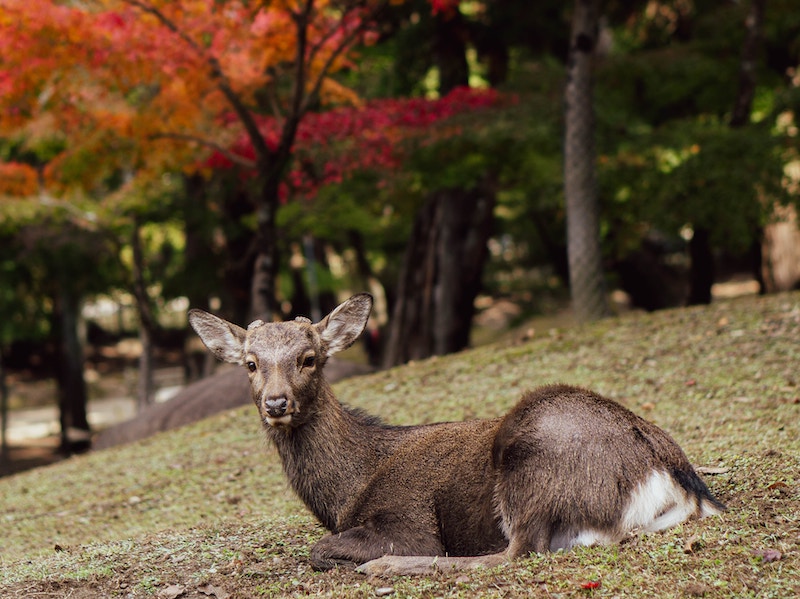Japanese maples, Acer palmatum, are some of the most versatile landscape trees available, with numerous cultivars in a variety of sizes, leaf colors, and forms. Despite their compelling beauty, these trees are usually safe from browsing by deer unless little else is available to eat. Seedlings and fresh spring growth are most prone to grazing by deer. Because they lack upper teeth, deer damage to Japanese maples will appear as uneven tearing of leaves and shoots. Japanese maples may also be damaged by antler rubbing, which is when bucks rub their antlers on the bark of young trees in the fall. This may lead to stripping of the bark and damage to the tree’s vascular system.

According to Rutgers University, Japanese maples are Seldom Severely Damaged on their rating scale from Rarely Damaged to Frequently Severely Damaged. This means that deer may nibble these trees, but the damage is rarely fatal.
| Rarely Damaged |
| Seldom Severely Damaged |
| Occasionally Severely Damaged |
| Frequently Severely Damaged |
Keeping Deer Away From Japanese Maples
Since deer browsing of Japanese maples is uncommon, prevention may not be necessary unless large populations of deer are present. Ward off hungry deer by spraying an organic deer deterrent. There are several of these sprays available, but keep in mind that deer may become used to them if they are overused. They also usually have to be reapplied often, especially following rain. Younger, smaller Japanese maples should be protected from deer by staking mesh, wire, or plastic tree guards around the plant. Do not allow the tree guard to make direct contact with the tree, as this can cause damage to the bark. If deer pressure is especially heavy, you should exclude deer entirely from your yard by erecting deer fencing that is at least 8 feet tall.
Will Japanese Maples Come Back After Deer Eat Them?
It is unlikely that your Japanese maples will die after deer eat them. Established, mature trees will heal nicely with little to no intervention. Younger trees may need more support, especially if their bark is damaged from antler rubbing. Prune off any damaged branches immediately. Water well, especially during drought periods, to reduce stress to the plant. Proper fertilization will also encourage the regrowth of Japanese maples. Spring is a great time to fertilize, especially since this is when much of deer browsing occurs.
Sources: Rutgers New Jersey Agricultural Experiment Station ‘Landscape Plants Rated by Deer Resistance’ 2018
 |
Lauren Youngcourt - Published 04-30-2023 |
